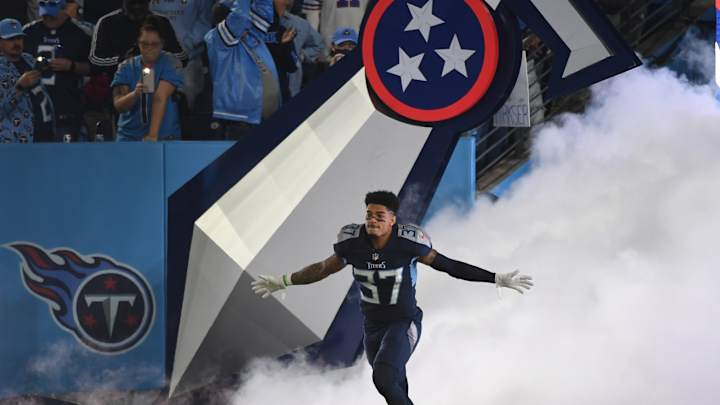A Mindful Recovery Process

NASHVILLE – Walking off the football field a few weeks ago, Amani Hooker felt drained, just as he does at the end of every punishing NFL contest.
There was one important difference.
“It felt like a game,” the Tennessee Titans safety said, “but it was only a walk-through practice.”
The throbbing, pounding sensation in Hooker’s head following the light practice on Oct. 5 let him know that – as much as he might have hoped to return that week from a concussion – the time was not right.
It was the kind of prudent decision, made in conjunction with team doctors, that seems all the wiser these days, given what transpired recently with Miami Dolphins and Tua Tagovailoa.
The Dolphins and Tagvailoa made headlines for all the wrong reasons earlier this season when the quarterback suffered frightening symptoms from a concussion in a Sept. 29 game against Cincinnati. That was only four days after it appeared he had displayed concussion-like symptoms in a contest against Buffalo.
Those events led the NFL and NFL Players Association to change the league's concussion protocols, and to the firing of the "unaffiliated neurotrauma consultant" who was involved in clearing Tagovailoa to return to the Buffalo game.
Hooker suffered his concussion Sept. 25 in a Week 3 game against the Raiders, the same day Tagovailoa wobbled noticeably after his head hit the ground against the Bills.
Unlike Tagovailoa, however, Hooker didn’t come close to playing in his team’s next game. In fact, he never even set foot on the practice field in the days leading up to the Week 4 matchup with the Indianapolis Colts. Hooker focused instead on the healing process for a concussion, one that’s unlike recovery from any other kind of injury.
“Honestly, I spent a lot of time just sitting in a dark room – making sure the lights are off, staying off your phone, not staying up too late watching TV,” Hooker said. “I just wanted to stay away from light and too much loud noise. That kind of affects me a lot.”
The 24 year-old didn’t go into complete hermit mode but analyzed every moment of his behavior with an eye toward alleviating any potential concussion-symptom triggers.
“I still did my regular stuff at home, but it was just more being cautious,” Hooker said. “Like, `Hey, am I sitting here in the middle of the kitchen with the lights on?’ Or `Am I watching too much TV in the dark as it gets later in the night?’ Just trying to be more cautious with what I was doing and how I was feeling.”
After he sat out the victory over the Colts, Hooker felt good enough to resume practice. He was allowed to do so while still under NFL concussion protocol, the medically supervised ramp-up process players work through on their way back to full health.
But the one light practice Hooker took part in that week was enough to convince him – and doctors – that he wasn’t ready to prepare for the Titans’ game against Washington.
“I didn’t want what happened to Tua to happen to me,” Hooker said. “I wanted to be patient with it. I wanted to make sure I was cautious about my return.
“So you just go back to resting. Once you start feeling better, then you work out again and then start that practicing stuff again.”
Things went much more smoothly this week following the Titans’ bye. A symptom-free Hooker took part in practice Monday and – after getting checked out by a neurologist on Tuesday – cleared concussion protocol.
“It was a relief,” Hooker said.
Hooker was a full participant in practice on Wednesday and Thursday, meaning he should once again – barring any late setbacks – be in the Titans’ starting lineup on Sunday.
He’ll take the field knowing a little extra patience has given him both a clear head and peace of mind.
